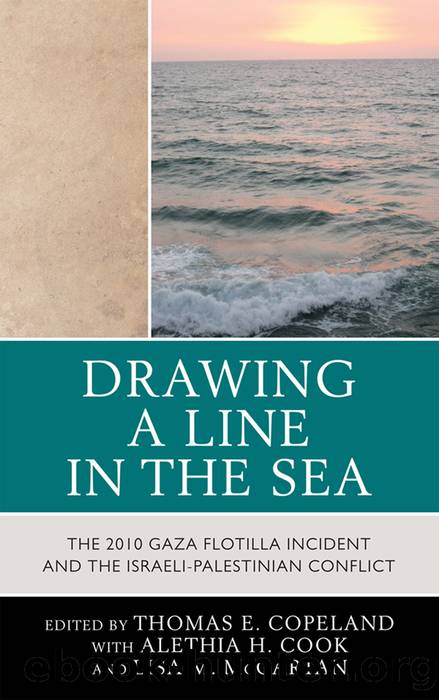Drawing a Line in the Sea by unknow

Author:unknow
Language: eng
Format: epub
ISBN: 9780739169551
Publisher: Lexington Books
Reform Efforts
There is a clear and pressing need for systemic change in how Western nations deal with charity-terrorist financing. The IHH and similar organizations continue to operate even after their assets have been frozen by major world powers such as the United States and Britain. What seems increasingly obvious is that more pressure needs to be placed on âfriendlyâ allies such as Saudi Arabia and Pakistan to prevent these organizations from redirecting large charitable donations from wealthy individual citizens and government officials to support terrorism.
The United Nations and other multinational organizations have passed several resolutions and conventions aimed at stemming the flow of terrorist financing. Although the signatories to such agreements include hundreds of governments, follow-up compliance efforts in the form of local legislation to monitor and restrict money laundering activities of ostensibly charitable organizations is sorely lacking. We currently lack a centralized mechanism to ensure that monies collected for social welfare purposes are spent in ways which do not directly or indirectly further terrorist activities. There is clearly too much sensitivity afforded to considerations of national sovereignty, especially involving countries which are themselves ambivalent about fulfilling the intent of the UN conventions or even promote the terrorist funding efforts themselves.
In dealing with social welfare initiatives which serve as fronts for terrorist financing, we need to criminalize any acts of compliance and insure that the definitions of associated activities such as money laundering are standardized across law enforcement agencies. The associated sanctions need to have enough financial clout to overcome misplaced sympathies at the highest government levels with what is essentially a distortion of the Muslim religious zakat obligation. Legislation such as the USA Patriot Act has greatly expanded options for law enforcement officials in terms of their investigative techniques and access to relevant information. It has increased the likelihood of meaningful consequences for defendants found guilty of financial improprieties such as those involved in the charity-terror connections. However, this type of US domestic legislation cannot in and of itself be totally effective in countering the international aspects of the problem.
Even the passage of local âPatriot Actsâ in each of the countries involved also cannot eliminate deeply ingrained attitudes in Muslim societies which perpetuate, from earliest educational experiences onward, the concept of fulfilling Allahâs will by forcibly converting ânonbelievers.â This clearly overrides the consideration of individual citizensâ rights and privileges. Realistically, social attitudinal reform on such a grand scale cannot be expected overnight, even in our technological age with greatly enhanced exchanges of perspectives and attitudes. Short of this, however, if legal and financial consequences are effectively implemented, we can expect that charitable organizations with hidden agendas will be deterred from exposing their benefactors to swift and certain world condemnation and sanctions. In turn, legitimate venues of charitable giving will find themselves strengthened, enjoying increased resources from a public that is more confident about the ultimate destination of its support. It is vital that clear distinctions be made between those charitable organizations acting as fronts for terror and those whose activities are untainted.
Download
This site does not store any files on its server. We only index and link to content provided by other sites. Please contact the content providers to delete copyright contents if any and email us, we'll remove relevant links or contents immediately.
| Cartooning | Drawing |
| Fashion | History |
| Painting | Sculpture |
| Fiction | Techniques |
Audition by Ryu Murakami(4930)
The House on Mango Street by Sandra Cisneros(3472)
Draw-A-Saurus by James Silvani(2719)
Dork Diaries 12 by Rachel Renée Russell(2366)
Miss Peregrine's Home for Peculiar Children by Ransom Riggs(2228)
Born Out of Wedlock by Lyn Gardner(2227)
Frankly, Frannie by AJ Stern(2208)
The Audition by Maddie Ziegler(2198)
I Know Why the Caged Bird Sings by Maya Angelou(2144)
Origami Art by Michael G. Lafosse & Richard L. Alexander(2096)
Yerma by Federico García Lorca(2070)
Sophie's World by Jostein Gaarder(2018)
Hamnet by Maggie O'Farrell(1905)
1936941139 (N) by Bob Rosenthal(1899)
I know why the caged bird sings by Maya Angelou(1863)
Fashion 101 by Erika Stalder(1848)
Romancing the Nerd by Leah Rae Miller(1682)
Being Nikki by Meg Cabot(1641)
Star-Crossed by Barbara Dee(1583)
